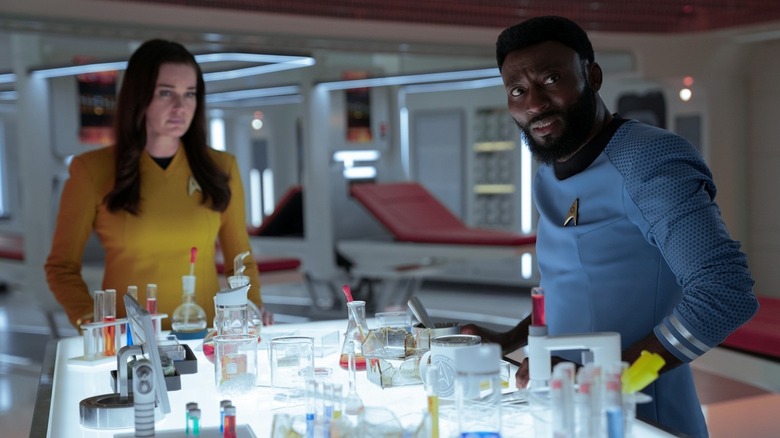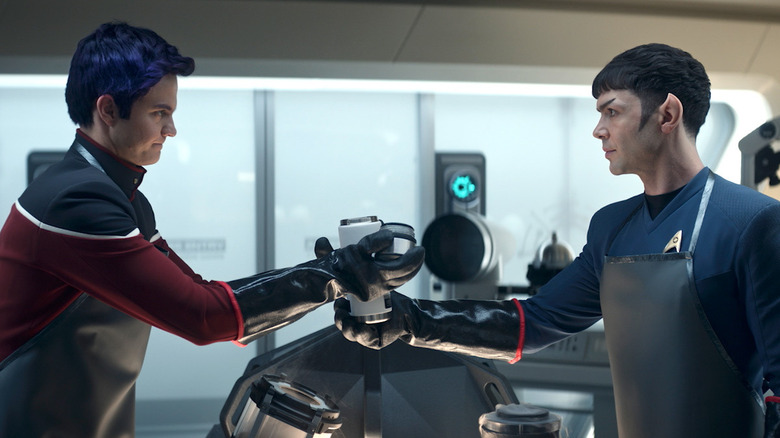Star Trek: Strange New Worlds Does One Thing To Make Sure The Science Isn't Complicated
"Star Trek" has long had the reputation as the nerdiest of science fiction franchises, mostly because of its adherence to realism. While the technology of "Star Trek" is surely fantastical, it's always been based on actual scientific theory, and that holds true for its latest flagship show, "Star Trek: Strange New Worlds." But the writers don't simply flip through a textbook to make sure they get it right — they have qualified help in the form of consultants like astrophysicist and aerospace engineer Erin MacDonald.
"When I come on as a science advisor to any show or film, my first task is to figure out where on the spectrum of science to fiction the science fiction wants to land," MacDonald told Nerdist. "I'm involved from the development of the plots for the season, all the way through post-production and getting the graphics right. Getting equations written, getting these star maps laid out, and what the planets look like."
Of course, MacDonald also has to help explain how technology like the transporter works, as even the most outlandish "Trek" tech must be grounded in some level of real scientific principles. But it hasn't been lost on her that much of the fictional science throughout "Star Trek" has found its way into reality, noting how popular e-readers like the Kindle are almost exactly like the PADD devices used by Starfleet officers. "That's not a mistake. A lot of people who go into engineering, invention, and technology are inspired by 'Star Trek.'"
Star Trek has a long history of employing consultants
"Star Trek: Strange New Worlds" was far from the first "Trek" series to employ an outside consultant to ensure its science's believability. In the 1990s, shows like "Star Trek: The Next Generation," "Deep Space Nine," "Voyager," and "Enterprise" employed multiple scientific advisors, most notably, André Bormanis. With a physics degree from the University of Arizona, Bormanis served as science consultant for the latter three series and the final season of "The Next Generation," before becoming a writer on several episodes. David Krieger may have served a far shorter tenure as consultant on only two seasons of "TNG," but the Krieger Wave from the episode "A Matter of Perspective" was named in his honor.
But going back all the way to 1966, "Star Trek" has employed advisors such as RAND Corporation physicist Harvey P. Lynn, who consulted for the show's very first pilot episode, "The Cage." Beyond researchers and scientists, at least two major science fiction authors have helped out, too, both of whom have heavy science backgrounds. The legendary writer Isaac Asimov — author of the "Foundation" series — helped out on "Star Trek: The Motion Picture." Gregory Benford, who wrote several "Foundation" novels after Asimov's passing, pitched in during production of "The Next Generation" when it first launched in 1987.

